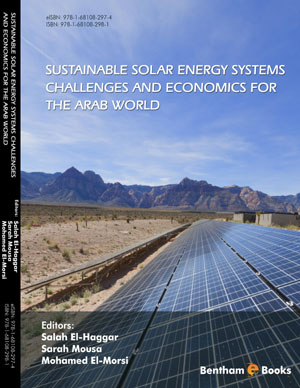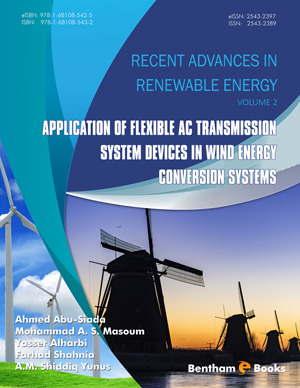Abstract
The need to account for sustainable development when it comes to energy is crucial; the major energy sources in current use are unsustainable in that they harm the environment and deplete resources for current generations and especially for future ones. Significant amounts of energy can be saved if a technology used to accomplish a given task is designed efficiently. Examples include the use of (i) passive building design to meet the heating and cooling demands of buildings, and (ii) solar energy for water heating, generating electricity, water desalination and cooking. Several case studies, presented in this chapter, from different geographic locations show that several technologies can be adopted to meet a certain energy use without scarifying the environmental, social, cultural, and/or aesthetic standards.
Keywords: Arab world, BedZED, Brundtland report, Case studies, Falkenmark index, Gaza, Hybrid ventilation, Masdar, MENA, Middle East, Passive, Solar chimney, Solar dryers, Solar energy, Sustainable development, Technologies, Thermal mass, Water desalination, Water scarcity, Zero energy.













